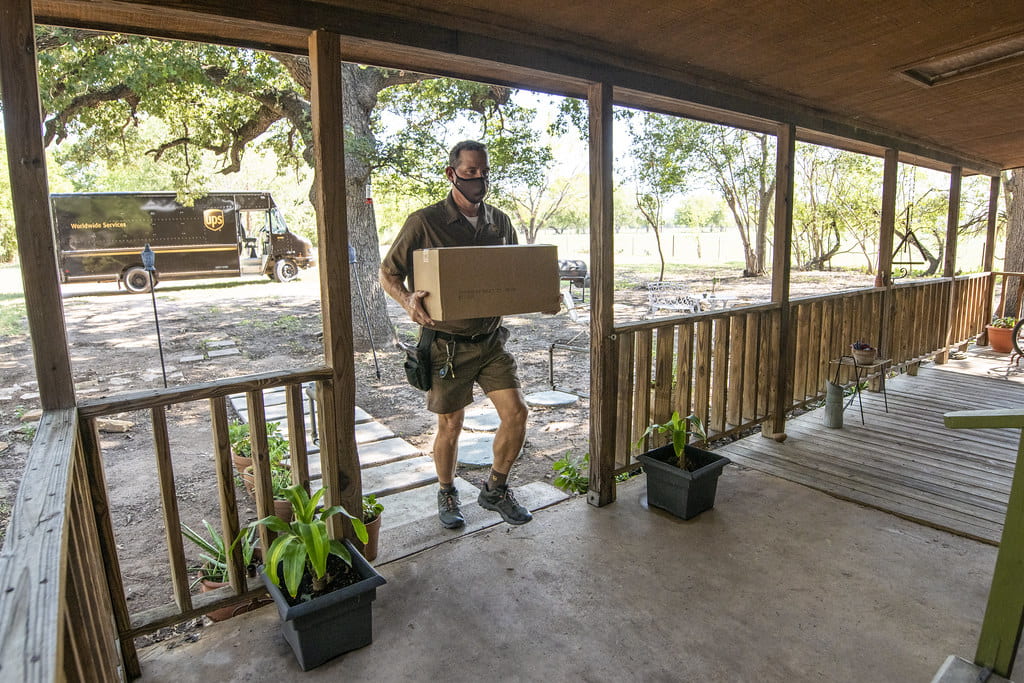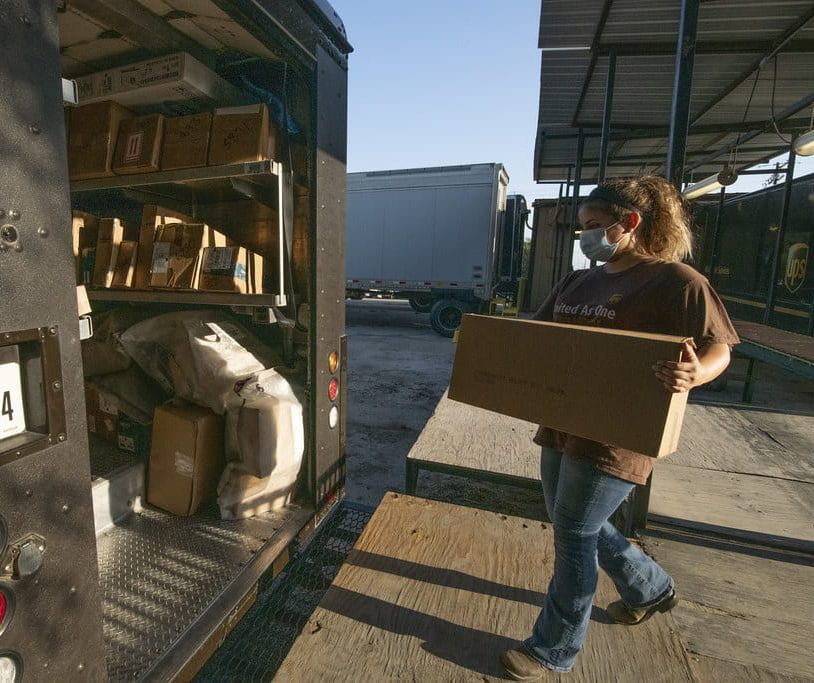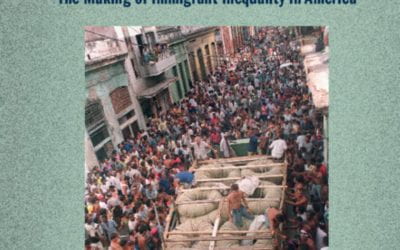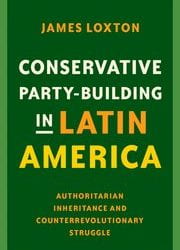My Three Hundred Eighty Eight Thousand Eight Hundred (and counting) Minutes in Ni modo-covid-19 Mood
Paraphrasing the play RENT´s great question: “How do you measure a year? “Not any year, this year when more than a million have already succumbed to Covid-19, and the tally is rising. How do you measure a year when the acute fall in economic activity and trade —the largest in a century— along with the collapse of labor markets has brutally impacted the livelihoods of a massive proportion of the world population, plunging hundreds of millions into deprivation, misery and even hunger? How do we measure a year in which our primal fears of ill health, of the loss of loved ones, of our own death —fears of certainties normally kept at comfortable bay— have brutally interrupted our “napping with a rap, tap, tapping at our chamber door”?
Without clear answers to the question on how to measure this year, and a preference for hopes against fears and tears, for ReVista I opted to reexamine my year through my favorite things. Raindrops on roses? Not bad, but not exactly a thrilling option when one is in lockdown. Whiskers on kittens? Nope. I hate cats! Actually, I am sure the dislike is mutual and fully democratic. Independently of their color, age, sex, size, origin or name—one, two or three of which—cats are not in my list, and neither I am in theirs! Tigers and other felines are a different matter, but I am not about to find out whether we have affinities. Copper kettles and woolen mittens? Well, back in my days in Cambridge at DRCLAS, both items brightened and warmed the, initially white and later muddy, cold winters that thankfully one day melted into spring. But, though pretty, neither of them are of much use in Mexico City. So, in brief, the pandemic has brought no change in my preferences for them.

Women load relief packages during COVID-19 pandemic. (“20200813-FNS-LSC-0312” by USDAgov is marked with CC PDM 1.0)
What about brown paper packages? They moved to the top of my list since —like bears suddenly struck with attention-deficit-disorder to the orderly passage of seasons—we began to hibernate in the spring, packages tied-up with strings or untied have become my top favorite things. Things? Pardon me! Such platitude of a description borders in disrespect to name such welcome visitors. Packages, for me seen as precious gifts, appear at our door thanks to the kind labor of masked strangers. Unannounced—sometimes longingly expected—they arrive disguised in a variety of forms, shapes, sizes and colors. And, after a ritual of sanitization, disinfection and wiping, they are granted safe passage to our living room. Yes, living room, a most accurate name for the site in our apartment where the family most coincides in our (co)existence with the pandemic. Once purged of the potential presence of the evil-spirited virus, these packages open, bearing presents, mementos and news from the “outside”—that land once so familiar and now so eerie and even perilous.
The whole process, from the initial moment of announcement of the arrival of a package, to the intermediate one in which a young woman or man knocks at our door to deliver it, to the final one when a family member opens it, is now marked by joy, rush and nostalgia. A process that triggers varied responses in my family, in me. Independently of the content of the package, as soon as I meet the eyes of the young messenger delivering the package, my spirit, my inner response jumps in two opposite directions. On the one hand, struck by the fear of contagion, my mind inclines me to rush the process; to say thanks and fare her or him goodbye as soon as possible. On the other hand, my conviction that these young messengers—due to the far from financially solvent personal situations and the lack of better employment opportunities in this acute recession—are forced to risk their health and existence working in the delivery of packages triggers in me, in my family, also a response of deep empathy, of profound solidarity. This reaction leads me to start a quick conversation with them on the topic that most concentrates our hearts and minds these days. What has been the impact of the virus cum economic recession and lockdown in their families, their everyday activities, their livelihoods, their hopes?

UPS delivery man arrives with package during pandemic. (“20200824-FNS-LSC-0359” by USDAgov is marked with CC PDM 1.0)
My empathy is then materially expressed in a thankful, and to a certain extent guilt-driven, extraordinary tip—a tip that, I am fully aware, by no means compensates their risks of contagion. Recall that Mexico has been for months among the ten countries with the highest incidence of deaths by Covid-19 per 100,000 inhabitants. In addition, the health effects—not to mention the economic ones—are very unevenly distributed, hitting much more the poor, among them those who are likely to be working as vulnerable messengers.
Admittedly too, my tip—as high as it may perhaps seem to the one receiving it any given day—does nothing, absolutely nothing to solve these poor youngsters´ economic plight. A plight, rooted in inequalities, that has been aggravated by the pandemic and the refusal of the Mexican authorities to devote major public resources to implement social and economic programs specifically tailored to the emergency. In this regard, recall that Mexico—with its current government´s absurd commitment to Austerity in the midst of the severest recession in decades—is one of the countries in the whole world with the weakest fiscal response implemented to mitigate the brutally adverse effects of the pandemic. In fact, the resources channeled by its Ministry of Finance to help private businesses to avoid closures and job losses are virtually nil. And the funds oriented by the Ministry to assist the millions who lost their jobs as well as those who, still employed in the formal or informal sector, saw their remunerations slashed or fully cancelled are insignificant as a portion of GDP. No wonder that the incidence of poverty in Mexico is forecasted to climb close to ten points nationwide in 2020.
My reactions above described bring to my mind, every day, the famous quotation by Terence “Homo sum, humani nihil a me alienum puto,” translated as “I am human: I consider nothing human is alien to me”. This thought, actually, is at the root of my practice, in my brief and daily walks, to wear a facemask and purposely keep social distance with any human beings. As the American Medical Association and—closer to my heart—also Joe Biden (hopefully the next U.S. president) have clearly stated, in the pandemic, these practices are the conspicuous and concrete manifestation of profound respect to “the other,” to our fellow human beings.
And this brings me to my final thoughts on my learning experience in this very, very long year. At a personal level, brown paper packages are way up in my list of favorite things! They became my trustworthy visitors, ambassadors putting me, putting us, in a sort of physical contact with our extended families, friends, grocery sellers, book dealers and other fellow human beings—with strange or familiar faces—close and far away. They are my gentle and daily reminder of the world outside.
And this reminds me of another lesson that I learned in these long months of witnessing the pain of many—many of them poor—due to the loss of loved ones, the loss of their good health, the loss of their jobs and livelihoods and, very important, the truncation of hope of a better future for themselves and their children obscured by the pandemic and the recession. This is a lesson more on a social or political level. And it is the conviction that we need to work to rebuild, to reinvent the world as we knew it, a world severely hurt. This reconstruction, economically and socially, must be done with a firm commitment to reduce inequality, to put in place an efficient and affordable universal social protection system, and to transform our industrial and agricultural activities to be environmentally sustainable. We have to understand that the health of everyone depends on the health of the poorest; that the overall welfare of Mexico, and for that matter of the world, rests too on the welfare of the destitute. My hope is that we do move to reconstruct in that direction, the only one to honor what the Bard wrote:
What a piece of work is a man! How noble in reason, how infinite in faculty! In form and moving how express and admirable! In action how like an angel, in apprehension how like a god!
Juan Carlos Moreno Brid is a Full Professor of Economics-UNAM in Mexico City. From 2000 to 2014 he was Deputy Director/Research Coordinator of the United Nations Economic Commission for Latin America and the Caribbean (ECLAC-Mexico), following a stay of “a great five years” as Research Associate at the David Rockefeller Center for Latin American Studies. His main fields of expertise are development and economic growth in Latin America. He is a founding member of the World Economic Association, the second largest association of economists, with more than 16,000 members worldwide. He holds a Ph.D. from Cambridge University.
Related Articles
A Review of Cuban Privilege: the Making of Immigrant Inequality in America by Susan Eckstein
If anyone had any doubts that Cubans were treated exceptionally well by the United States immigration and welfare authorities, relative to other immigrant groups and even relative to …
A Review of Conservative Party-Building in Latin America: Authoritarian Inheritance and Counterrevolutionary Struggle
James Loxton’s Conservative Party-Building in Latin America: Authoritarian Inheritance and Counterrevolutionary Struggle makes very important, original contributions to the study of…
Endnote – Eyes on COVID-19
Endnote A Continuing SagaIt’s not over yet. Covid (we’ll drop the -19 going forward) is still causing deaths and serious illness in Latin America and the Caribbean, as elsewhere. One out of every four Covid deaths in the world has taken place in Latin America,...




